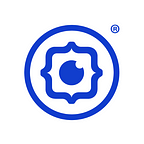Accessible Remote Communications: Week 6
Uh-oh, I forgot to post this on Thursday before the best bank holiday weekend of the year started. So before we dive into a new week, I’ll recount what we did last week. (Also, Karen from Home-Start sent me her week notes and I felt really bad about not posting them sooner. Sorry Karen.) In order to ease my guilt, let’s have a look at what Karen got up to on week 6:
Finding ourselves halfway through the process already was a bit of a surprise, but it’s been great to have the chance to reflect on what we’ve achieved. At times it has felt like I’ve just fallen down one rabbit hole after another, but looking back I can see that each rabbit hole was a discovery and now I have a much better map of the field.
It’s been great learning more about Agile working and trying out different ideas during the retros and sprint planning sessions. The sailboat analogy was a particular favourite! And the check-in rituals that once felt quite alien now seem just as normal as starting a meeting with a quick hello in the line for coffee.
While all the rabbit holes have been fascinating and great learning opportunities that will be of use in the future, I worried that my sailboat was slowly but surely drifting the wrong way. Then our initial goal of surveying the network to get real data around digital experience had to be put on hold! It could have felt like we’d reached a dead end. In reality though, we knew we had lots of that information anecdotally and probably enough to quickly test some ideas with a couple of willing participants. By doing this we can work out whether there is an appetite for using digital differently with families, whether it’s worth going forward and testing ideas more widely, and get feedback from participants about whether remote support has met their needs.
I think that Karen’s summary compliments my experience of the programme too. We’ve been aware that charities might worry that our approach isn’t relevant to what they [think they] want to do, but our overall aim is to help increase confidence and knowledge of how a digital project works so that they have more skills in the long term, as well as the specific deliverable.
After sprint 2’s retro we had a mid-programme check in. I was curious to hear how the charities have found the process so far, and I’ve mentioned a few times that things to improve (what some other people might call ‘negative feedback’, but I don’t think that language is useful) is always welcome. Despite that, all of the charities has similarly positive check ins: it’s been tricky to fit in the work alongside their day to day tasks; they’re enjoying collaborating; they’re ready to get stuck in to testing.
We managed to reduce our sprint planning meeting to an hour, and I think this shows that we’re in a rhythm and everyone does feel more confident about the process. I did check that assumption out before I added it to this blog…just in case you were wondering.
Sprint 3’s theme is user testing and collating user data. I spoke to Kevin from SLiDE a few weeks ago about an accessible approach to user testing — his charity’s beneficiaries are mostly people living with disabilities and Parkinson’s Disease. It got me thinking that user testing as standard is so inaccessible, and that it’s really important to reframe it with these charities and make sure that we’re considering our users. In preparation for the user testing masterclass on Tuesday, I pinged a message on the digital partner’s Slack with the following:
Unfortunately two four day weeks mean that booking people for a masterclass wasn’t going to happen, so I spoke to Molly from Dev Society, a fellow co-operative from CoTech. She was really helpful and gave me some practical tips on staggering information, taking breaks and being creative when testing. I also spoke to Isobel and Elaine from DXW and we reflected that the term ‘user testing’ is unhelpful. Speaking to them made me realise how much I know — I’ve been the user testing lead at Outlandish for five years and recently ran sessions with stroke survivors on another Catalyst project so I decided that I’ll deliver the user testing masterclass.
And that was it, week 6 was done and Easter had arrived.
